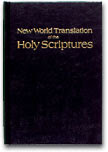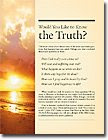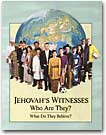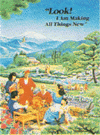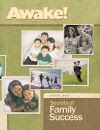Luke 20:1-47
Nisan 11, 33 C.E.
On one of the days while he was teaching the people in the temple and declaring the good news, the chief priests and the scribes with the older men came near, and they spoke up, saying to him: "Tell us by what authority you do these things, or who it is that gave you this authority." In reply he said to them: "I will also ask you a question, and you tell me: Was the baptism of John from heaven or from men?" Then among themselves they drew conclusions, saying: "If we say, 'From heaven,' he will say, 'Why is it you did not believe him?' But if we say, 'From men,' the people one and all will stone us, for they are persuaded that John was a prophet." So they replied that they did not know its source. And Jesus said to them: "Neither am I telling you by what authority I do these things."
Then he started to tell the people this illustration: "A man planted a vineyard and let it out to cultivators, and he traveled abroad for considerable time. But in due season he sent out a slave to the cultivators, that they might give him some of the fruit of the vineyard. The cultivators, however, sent him away empty, after beating him up. But he repeated and sent them a different slave. That one also they beat up and dishonored and sent away empty. Yet again he sent a third; this one also they wounded and threw out. At this the owner of the vineyard said, "What shall I do? I will send my son the beloved. Likely they will respect this one."When the cultivators caught sight of him they went reasoning with one another, saying, "This is the heir; let us kill him, that the inheritance may become ours." With that they threw him outside the vineyard and killed him. What, therefore, will the owner of the vineyard do to them? He will come and destroy these cultivators and will give the vineyard to others."
On hearing this they said: "Never may that happen!" But he looked upon them and said: "What, then, does this that is written mean, 'The stone which the builders rejected, this has become the chief cornerstone'? Everyone falling upon that stone will be shattered. As for anyone upon whom it falls, it will pulverize him."
The scribes and the chief priests now sought to get their hands on him in that very hour, but they feared the people; for they perceived that he spoke this illustration with them in mind. And, after observing him closely, they sent out men secretly hired to pretend that they were righteous, in order that they might catch him in speech, so as to turn him over to the government and to the authority of the governor. And they questioned him, saying: "Teacher, we know you speak and teach correctly and show no partiality, but you teach the way of God in line with truth: Is it lawful for us to pay tax to Caesar or not?" But he detected their cunning and said to them: "Show me a denarius. Whose image and inscription does it have?" They said: "Caesar’s." He said to them: "By all means, then, pay back Caesar’s things to Caesar, but God’s things to God." Well, they were not able to catch him in this saying before the people, but, in amazement at his answer, they said nothing.
However, some of the Sadducees, those who say there is no resurrection, came up and questioned him, saying: "Teacher, Moses wrote us, 'If a man’s brother dies having a wife, but this one remained childless, his brother should take the wife and raise up offspring from her for his brother.' Accordingly there were seven brothers; and the first took a wife and died childless. So the second, and the third took her. Likewise even the seven: they did not leave children behind, but died off. Lastly, the woman also died. Consequently, in the resurrection, of which one of them does she become the wife? For the seven got her as wife."
Jesus said to them: "The children of this system of things marry and are given in marriage, but those who have been counted worthy of gaining that system of things and the resurrection from the dead neither marry nor are given in marriage. In fact, neither can they die anymore, for they are like the angels, and they are God’s children by being children of the resurrection. But that the dead are raised up even Moses disclosed, in the account about the thornbush, when he calls Jehovah 'the God of Abraham and God of Isaac and God of Jacob.' He is a God, not of the dead, but of the living, for they are all living to him. In response some of the scribes said: "Teacher, you spoke well." For no longer did they have the courage to ask him a single question.
In turn he said to them: "How is it they say that the Christ is David’s son? For David himself says in the book of Psalms, 'Jehovah said to my Lord, Sit at my right hand until I place your enemies as a stool for your feet.' David, therefore, calls him 'Lord'; so how is he his son?"
Then, while all the people were listening he said to the disciples: "Look out for the scribes who desire to walk around in robes and like greetings in the marketplaces and front seats in the synagogues and most prominent places at evening meals, and who devour the houses of the widows and for a pretext make long prayers. These will receive a heavier judgment."
"This is the Way, walk in it, you people."-Isaiah 30:21
Blog Archive
-
▼
2009
(60)
-
▼
Apr 2009
(20)
- Jehovah
- What About...Luke 23:43?
- Powerful Reasoning Against the Trinity
- Messiah, Pt. 4: We Have Found the Messiah
- Messiah, Pt. 3: By His Wounds We are Healed
- Messiah, Pt. 2: The Spirit of...Jehovah is Upon Me
- Messiah, Pt. 1: There Has Been a Child Born to Us
- Memorial Reading for Thursday, April 9, 2009
- Keep Doing This in Rememberance of Me
- Memorial Reading for Wednesday, April 8, 2009
- Memorial Reading for Tuesday, April 7, 2009
- Objects of Hatred
- Memorial Reading for Monday, April 6, 2009
- Memorial Reading for Sunday, April 5, 2009
- The Great Tribulation, Pt. 2
- The Great Tribulation, Pt. 1
- Concerning the Messiah
- The Messiah in the Psalms
- Did Jesus Have a Pre-human Existence?
- Honor the Son
-
▼
Apr 2009
(20)
Your Personal Invitation


Websites of Interest
Other Jehovah's Witness Sites
- Our Spiritual Heritage
- How Theology and Bias Affect Bible Translation
- In Defense of the New World Translation
- Bible Translation and Study
- Jerusalem 607 B.C.E.
- Theocratic Resources
- Jehovah's Witnesses United
- The Jehovah's Witnesses and the United Nations
- Setting the Record Straight
- JW Brothers
- Face the Facts
- Quoted Statements
- David Silver's Website
- Serving Jehovah in Foreign Lands
Other Jehovah's Witness Blogs
Videos of Interest
Various Sign-Language Videos (Would You Like to Know the Truth?)
- American Sign Language
- Australian Sign Language
- Brazilian Sign Language
- British Sign Language
- French Sign Language
- German Sign Language
- Greek Sign Language
- Italian Sign Language
- Japanese Sign Language
- Korean Sign Language
- Mexican Sign Language
- Portuguese Sign Language
- Russian Sign Language
- Spanish Sign Language
All of the books appearing below are distributed for FREE by Jehovah's Witnesses. They are all based on the Bible and should not be read without the Holy Word so as to prove to yourself that what is contained in these books are actually Bible-based. Contact Jehovah's Witnesses locally in your area or write to the appropriate address found at the "Official Website of Jehovah's Witnesses" linked above.
New World Translation of the Bible (Clickable Picture)
Would You Like to Know the Truth? (Clickable Picture)
What Does God Require of Us? (Clickable Picture)
Jehovah's Witnesses--Who Are They? What Do They Believe? (Clickable Picture)
Look! I Am Making All Things New (Clickable Picture)
Should You Believe in the Trinity? (Clickable Picture)
When Someone You Love Dies (Clickable Picture)
How Can Blood Save Your Life? (Clickable Picture)
What Does the Bible Really Teach?

Explains the Basic Teachings in the Bible
Keep Yourselves in God's Love

Used in Bible studies with advanced students, this book explains practices to avoid so as to remain in God's favor
Draw Close to Jehovah

Explains the Four Dominant Qualities of God and How They Draw Us to Him
The Greatest Man Who Ever Lived
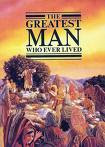
Takes the Life of Jesus Christ from the Four Gospels and Presents them in Chronological Order
Come, Be My Follower
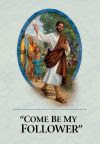
Explains Who Jesus Is and Why We Should Follow His Example in Our Daily Life
Pay Attention to Daniel's Prophecy

Explains the Book of Daniel in a Verse-by-Verse Format and Shows How His Book Has Meaning For Us Today
Live With Jehovah's Day in Mind
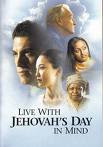
Takes an In-Depth Look at the Twelve "Minor" Prophets and Shows How Their Writings Benefit Us Today
The Secret to Family Happiness

Shows From the Bible What Families Can Do to Survive in This World Today
My Book of Bible Stories
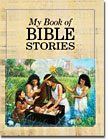
Takes the Most Famous and Loved Stories From the Bible and Presents Them for Children--Fully Illustrated
Is There a Creator Who Cares About You?

Using the Latest Understanding in the Scientific Field and the Bible to Prove That There is a Creator
Mankind's Search for God
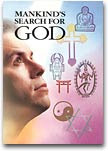
Gives an Overview of all the Major Religions of the World Including Islam, Judaism, Hinduism, Buddhism, and More
Knowledge That Leads to Everlasting Life

This is an older book that was at one time used by Jehovah's WItnesses to teach basic Bible doctrine
Jehovah's Witnesses--Proclaimers of God's Kingdom

This book presents the entire modern-day history of the Jehovah's Witnesses and their organization up until the year of publication--1993
All Scripture Is Inspired of God and Beneficial
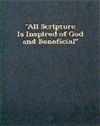
A Book That Gives a Brief Review of Each Book of the Bible, Examines the History of Each Book, Why It Was Written, and More!
Insight on the Scriptures
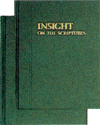
A Two-Volume Bible Encyclopaedia That Explains Every Person, Place, Thing, and Event in the Bible
The Watchtower Magazine
The Awake! Magazine
Jehovah God
Jesus Christ
- Jesus Christ-Who Was He?
- Is Jesus Christ God?
- A Birth to Be Remembered
- Lessons Jesus Taught-Are They Practical?
- Jesus' Miracles--Fact or Fiction?
- Reliving Jesus' Last Days on Earth
- The Resurrection of Jesus-Fact or Legend?
- Jesus Saves--How?
- How Jesus Can Change Your Life
- Christ's Coming-How Does It Affect You?
The Bible's Viewpoint
- What Was the Original Sin?
- What Happens at Death?
- Should You Pray to the Virgin Mary?
- Should Icons Be Used In Worship?
- Should Christians Expect Divine Protection?
- Prayers That Are Heard By God
- Is There Only One True God?
- Is the Holy Spirit a Person?
- Is It Wrong to Drink Alcoholic Beverages?
- Do Humans Become Angels When They Die?
- Does the Bible Discriminate Against Women?
- Does Science Contradict the Creation Account?
- Does God Approve of Same-Sex Marriage?
- Did Jesus Really Die on a Cross?
The Bible in Your Life
- What Hope for the Poor?
- Keep Your Children Safe!
- Why Care About Spiritual Things?
- Blood--Why So Valuable?
- Enjoy Family Life
- How Can You Find Inner Peace?
- Should You Live Only For Today?
- How Can You Benefit From Godly Principles?
- You Cannot Save It, So Use It Well
- Building on Pagan Foundations
- Hope--Where Can You Find It?
Biblical Answers to Questions Young People Ask
- Why So Many Rules?
- Why Does God Let Us Suffer?
- What's Wrong With Premarital Sex?
- How Can I Stop the Gossip?
- How Can I Help Those In Need?
- How Can I Cope When Trajedy Strikes?
- How Can I Avoid Getting Involved With the Wrong People?
- Homosexuality--How Can I Avoid It?
- Dabbling in the Occult--What's the Harm?
Visitors
The Bible says, "The heavens declare the glory of God; the skies proclaim the work of his hands." (Psalm 19:1) When we consider the marvelous works of our God, it should move us to "bend [our] knees" to Him. (Ephesians 3:14) Let us all be moved to thank our God and Father for all he has done for us. In the words of King David: "Every breathing thing--let is praise Jah. Praise Jah you people!"-Psalm 150:6

